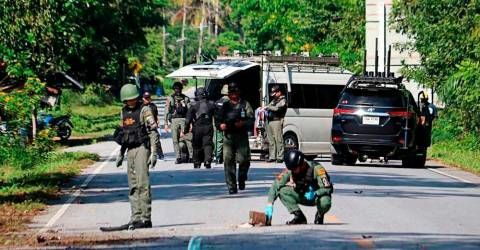Thailand extends emergency decree in Deep South

Thailand is extending the emergency decree in the Deep South for another three months. The decree applies to the border provinces of Yala, Pattani, and Narathiwat and will run from March 20 to June 19.
According to the Bangkok Post, the newest extension of the decree marks the 71st time it has been issued. The Deputy Prime Minister, Prawit Wongsuwon chaired a committee to review the decree and the state of violence in the south.
The assessment showed a decrease in violence in the Mayo district of Pattani, prompting officials to delist Mayo from the dangerous zone and impose the Internal Security Act instead.
The districts of Waeng, Sri Sakhon, Sungai Kolok and Sukhirin in Narathiwat are excluded from the decree. Mayo, Mai Kaen, Yaring, and Mae Lan districts in Pattani; and Kabang and Betong districts in Yala are also excluded.
Meanwhile, Prawit instructed the Isoc Forward Command and Provincial Police Region 9 to look for normal legal measures to replace the emergency decree to create a more peaceful atmosphere. Last year, peace talks resumed, with Prawit keeping such talks a priority for the region.
The emergency decree was first invoked in July 2005 due to low-level separatist violence in the south. According to the monitoring group Deep South Watch, from 2004 to the end of January 2023, the three provinces have seen 13,641 injuries and 7,344 deaths.
Just over a week ago, Special Weapons and Tactics (SWAT) officers killed a suspected insurgent in a shootout in Yala province, southern Thailand.
The deceased was suspected to have had a role in the ambush that killed a police officer, as well as the bombing of a PTT gas station in Than To district.
The SWAT team tried to negotiate and convince the suspects to come out and surrender to no avail.
At 5.45am, a suspected insurgent fired shots at the SWAT team and attempted to escape.
The SWAT officers fired shots back, killing 42 year old Ibrahim Sa, a wanted insurgent police say specialised in assembling improvised explosive devices (IEDs).
Latest Thailand News
Follow The Thaiger on Google News:


























